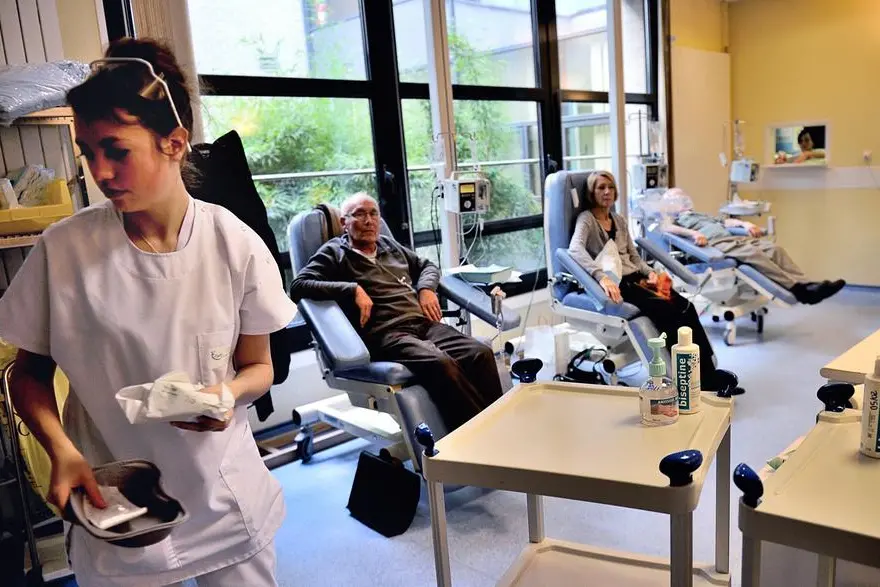PHOTO
Catherine, Princess of Wales, announced on Friday that she is currently undergoing preventative chemotherapy to treat cancer discovered after she had abdominal surgery.
While the exact situation is difficult to determine because the 42-year-old princess did not disclose the exact nature of the cancer, here are some questions answered about preventative chemo.
- What is chemotherapy? -
There are a large number of different kinds of chemotherapy, depending on the cancer and treatment regime, but they all involve treatment that aims to kill cancerous cells.
Because these treatments cannot distinguish between different cells, they end up killing some cells that do good, such as white blood cells, causing some side effects.
- Why preventative? -
Preventative chemotherapy is often used after surgery "to reduce the chance of cancer coming back and spreading", Lawrence Young, molecular oncology professor at the University of Warwick, told the Science Media Centre.
Even after successful surgery, "microscopic cancer cells can remain lurking in the body and can't be detected by current tests", he said.
It is "a bit like mopping a floor with bleach when you've spilt something on it", said Andrew Beggs, a cancer surgeon at the University of Birmingham.
- Side effects? -
How chemo affects people can vary depending on the particular cancer, treatment and person.
But common side effects include fatigue, nausea, diarrhoea, loss of appetite and an increased risk of getting an infection.
Some rarer, more severe side effects can include sepsis and damage to vital organs.
- How long? -
Treatment schedules again can vary widely, but a traditional chemo regime would be delivered in four to six blocks, said Bob Phillips, paediatric oncology professor at the University of York.
A cycle may last 21 days and "consists of a day or few days of chemo, then time for the body to recover from it," Phillips said.
Regimes of preventative chemo tend to last between three to six months.
It can take people weeks or months to recover from the treatment.
- More cancer among young people? -
Beggs emphasised that "young onset cancer is by no means rare".
"I run a clinic for early-onset cancer in adults and we are seeing more and more people in their 40s with cancer," he said.
Shivan Sivakumar, a oncology expert at the University of Birmingham said "there is an epidemic currently" of people under 50 getting cancer.
"It is unknown the cause of this, but we are seeing more patients getting abdominal cancers," he said.
Research published in the BMJ journal last week found that cancer cases among people in the UK aged 35-69 had risen over the last quarter of a century.
But it also found that deaths from cancer fell by a significant margin.
"The younger you are, the more likely you are to tolerate chemotherapy well," Sivakumar said.
Younger people also more likely to survive cancer.
A combination of early diagnosis and better treatments has led to "survival rates doubling in the last 50 years", Young said.
"An incidental finding of cancer during surgery for other conditions is often associated with the tumour being detected at an early stage when subsequent chemotherapy is much more effective," he added.
- Check yourself? -
Michelle Mitchell, chief executive of Cancer Research UK, said that such high-profile cancers can serve as a reminder for people to think about their own health.
"If people spot something that's not normal for them or isn't going away, they should check with their GP," she said.
"It probably won't be cancer. But if it is, spotting it at an early stage means treatment is more likely to be successful."




















